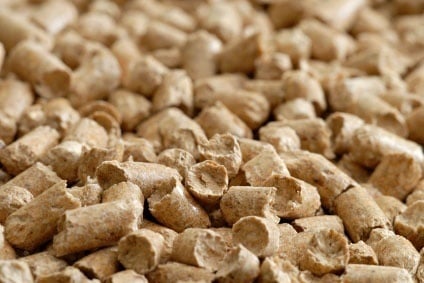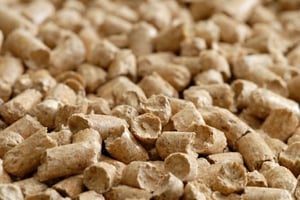3 min read
Japanese Demand for Wood Pellets Largely Fulfilled by North American Producers
 Stan Parton
:
March 12, 2019
Stan Parton
:
March 12, 2019

Where will these millions of tons of wood pellets come from in the future?
In 2018, Japan was home to 145 operating pellet facilities that produced just 125,000 metric tons annually; most facilities produce between 100 and 1,000 tons annually, which is a very small quantity compared to modern export wood pellet facilities in North America and Europe. To make up the deficit, Japan must rely on imports for most of its biomass. Canada has consistently been Japan’s largest supplier of wood pellets, accounting for approximately 71% of the co untry's imports in 2017. Asian suppliers Malaysia and Vietnam both claimed larger market shares in 2017.
untry's imports in 2017. Asian suppliers Malaysia and Vietnam both claimed larger market shares in 2017.
While both Malaysia and Vietnam can compete on a cost-per-ton basis, Japanese buyers maintain strict criteria for pellet sustainability and quality. In total, Japan imported over 12.6 million metric tons of wood feedstocks in 2017, a 4% increase over 2016. Because the Japanese have high quality standards and must therefore source more biomass from Canadian producers, its overall average prices are significantly higher than those paid in other developing biomass markets.
In 2017, Japan primarily used non-coniferous wood chips as an energy source: 86% of its wood feedstocks were sourced from this category. And while its use of both coniferous and non-coniferous wood chips has remained relatively steady, its total expenditures on wood chips fell in 2017, a result of lower prices. Japan’s use of wood pellets increased by 46% between 2016 and 2017, however, and as new capacity is added to utilize this particular feedstock, new opportunities are developing for foreign suppliers.
Supplying the Future
Japan’s long-term strategy is to source high-quality pellets and sign long-term contracts with reliable producers in North America. This is evidenced by the number of recent announcements about long-term off-take agreements with North American producers:
- Canadian pellet producer Pinnacle Renewable Energy Inc. recently released 4Q2018 financial results, reporting record pellet sales, new long-term pellet contracts and discussing future expansion plans. Pinnacle sold a record volume of 1.6 million metric tons of industrial wood pellets in 2018. The company also secured six new long-term contracts with customers in Japan totaling $1.9 billion last year. Pinnacle also said it secured two long-term contracts with CGN Daesan Power Co. Ltd. in South Korea last year totaling $1 billion.
Pinnacle has also constructed a new pellet plant in Smithers, British Columbia and gained majority ownership in an existing plant in Aliceville, Alabama. Once these facilities are both fully operational, they will increase Pinnacle’s annual wood pellet production capacity by 795,000 tons—an increase of 56 percent.
- US pellet producer Enviva Partners LP noted in its second quarter financial results that it had 1.5 million metric tons (four times Japan's 2017 import volume) under contract with multiple Japanese power generators that will come online before 2022. Under the terms of its agreements with Mitsubishi, Enviva said it will be the exclusive, long-term imported biomass fuel suppliers to Aioi Bioenergy Corp., a joint venture between Mitsubishi Corp. Power Ltd. and Kansai Electric Power Co. Inc. The project will convert Unit 2 of Aioi Power Station in Hyogo Prefecture from the use of heavy or crude oil to wood pellets. The unit is currently expected to begin generating power using biomass fuel in January 2023 and operate for a 20-year period. With seven wood pellet production facilities (and one under construction) and four port operations throughout the US South, Enviva is the world’s largest manufacturer of wood pellets.
- Vancouver-based Pacific BioEnergy Corp. recently announced that it has entered into two new long-term pellet supply contracts with Japanese power producers that will begin in 2020 and extend through 2035. Pacific BioEnergy will be supplying a combined 170,000 metric tons of pellets per year that will be delivered to newly-built dedicated biomass power plants. Sumitomo Corporation of Japan acquired a 48% stake in Pacific BioEnergy last year.
As biopower markets in Japan and throughout Asia mature, the increased competition for wood pellets and chips will provide opportunities for suppliers of these materials around the globe. Biopower producers in these markets will require a secure and consistent supply of both pellets and chips, sometimes from multiple suppliers in multiple geographies. As a result, they will require strong procurement strategies, supply chain risk assessments, cost analyses, supplier diligence processes and contract negotiation strategies.





